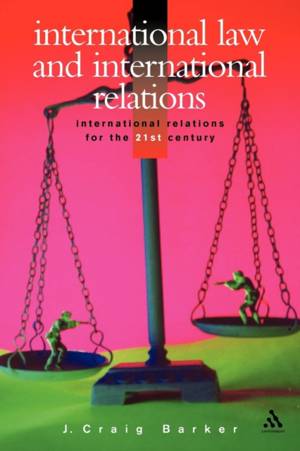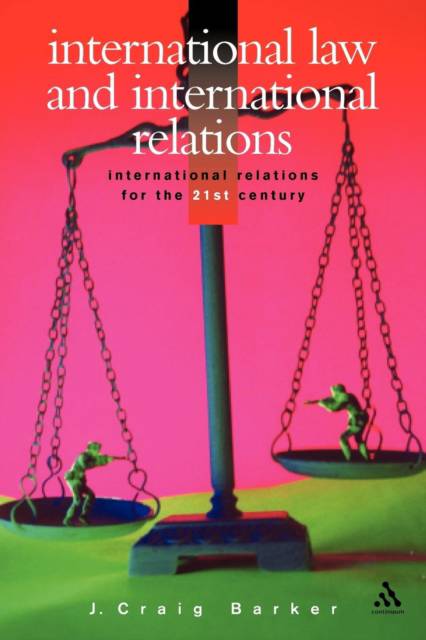
- Retrait gratuit dans votre magasin Club
- 7.000.000 titres dans notre catalogue
- Payer en toute sécurité
- Toujours un magasin près de chez vous
- Retrait gratuit dans votre magasin Club
- 7.000.0000 titres dans notre catalogue
- Payer en toute sécurité
- Toujours un magasin près de chez vous
Description
The disciplines of international law and international relations are inextricably linked. Both are concerned with the activities of states and with predicting how states behave and on what basis.For the international lawyer, however, the key concern is the role of the law. On the other hand, political scientists have traditionally regarded international law with skepticism, if not contempt. In recent years new approaches in both disciplines have seen moves towards greater interdisciplinary collaboration. Indeed, at the start of the twenty-first century, theorists from both disciplines are talking actively about the development of a dual agenda of international law and international relations. This means that students of international relations need increasingly to be familiar with the terminology and methodology of international law.This essential introductory text examines the key concepts in international law with a view to illuminating them in the context of international relations. The first part of the book provides coverage of theoretical issues, addressing questions such as: How does international law work? How is international law made? and To whom does international law apply? The second part examines international law in context, focusing on the role of treaties and customary international law, the role of individuals in international law and the legal control of the use of force. It also uses case-study material including an examination of the Pinochet litigation.
Spécifications
Parties prenantes
- Auteur(s) :
- Editeur:
Contenu
- Nombre de pages :
- 210
- Langue:
- Anglais
- Collection :
Caractéristiques
- EAN:
- 9780826450289
- Date de parution :
- 22-02-01
- Format:
- Livre broché
- Format numérique:
- Trade paperback (VS)
- Dimensions :
- 155 mm x 231 mm
- Poids :
- 294 g

Les avis
Nous publions uniquement les avis qui respectent les conditions requises. Consultez nos conditions pour les avis.






